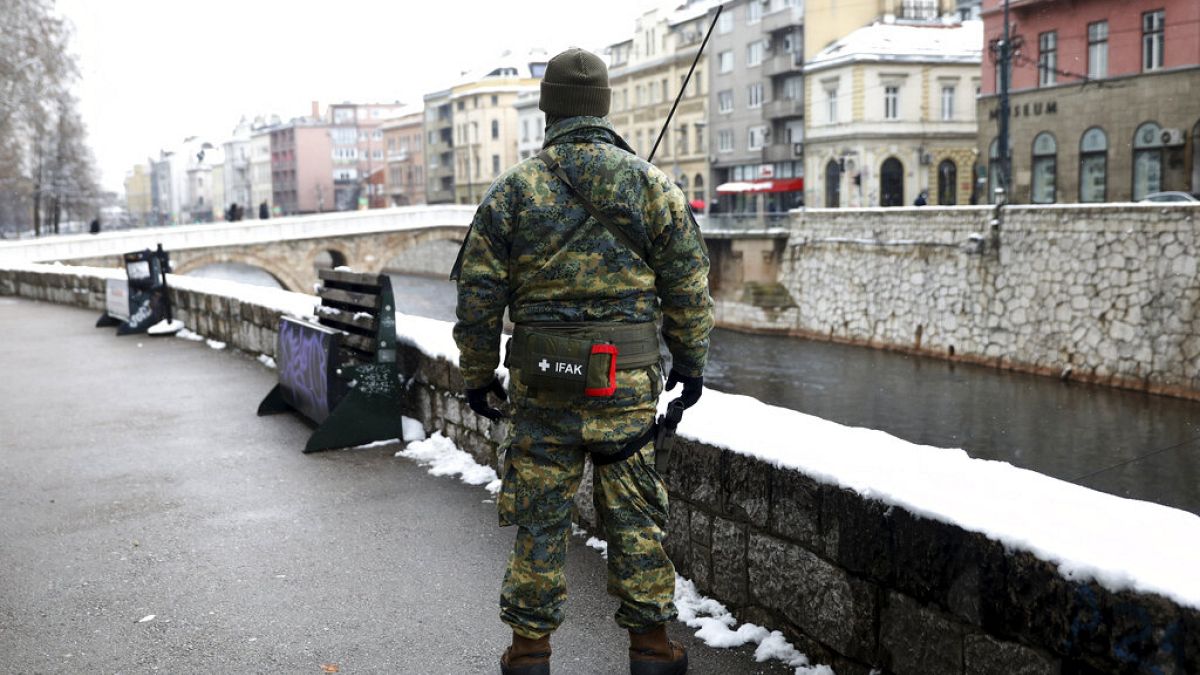America wants out. Russia wants in. Europe must be ready to protect itself.
NATO’s first secretary-general, Lord Hastings Lionel Ismay, famously said that NATO was created to “keep the Soviet Union out, the Americans in, and the Germans down.”
Ismay’s British wit captured splendidly the fundamentals of post-war security order in the continent – which included from the beginning both NATO and the process of European integration, from the European Coal and Steel Community to the European Union.
For more than 70 years, a strong transatlantic alliance deterred totalitarian expansion from the east, while the gradual unification of Europe made war materially impossible in the continent.
American military presence and NATO guaranteed European security, contained Russia, and allowed Germany to remain a military dwarf although it was a major economic and industrial powerhouse. The political context of this security arrangement changed often, but the fundamentals of European security remained the same.
Lately, however, Europe has been waking up to a new reality.
From Obama to Trump to Biden, US foreign policy has been steadily looking for a way out of Europe. With the Russo-Ukrainian conflict dating from 2014, Russia has been looking for a way back in.
Finally, the EU has been talking for years about becoming an autonomous security provider, which requires Germany to rise above its self-absorbing pacifism. After a period of gradual transformation, Russia’s war on Ukraine is a tipping point that makes Lord Ismay’s one-liner seem genuinely outdated.
When a threshold is reached, expect the system to change rapidly. This is exactly what seems to be happening in Europe after Putin invaded Ukraine. Judging from a common, united, and firm response to the war, the Versailles Declaration, and the EU’s Strategic Compass, both the EU and the national capitals are in tune with the historic shifts in the post-war order in Europe.
Two weeks into the war, and after Russia became the most-sanctioned country in the world, the French president invited the other 26 heads of EU states and governments for a two-day informal summit in Versailles. The EU leaders adopted a strong declaration against Russian aggression and committed to the broadest possible diplomatic, military, and humanitarian assistance to Ukraine.
The Versailles declaration – which was then added to the Annals of the European Union – talked about the common responsibility to “protect EU citizens, values and democracies and the European model”. It also described the new fundamentals of European security focusing on three key dimensions: “bolstering EU defense capabilities, reducing energy dependencies, and building a more robust economic base”.
10 days later, the EU approved the strategic compass, probably the most ambitious plan for a common foreign and security policy in the history of European integration. On March 25, in Brussels, the European Council endorsed it.
Self-described as a “quantum leap forward” the compass aims to improve the EU’s ability to “act decisively” and turn the EU into “a stronger and more capable security provider”. The document is a roadmap for developing military capabilities, improving defence spending and cooperation, responding to information-based threats, and strengthening partnerships with like-minded countries.
The Versailles declaration and the strategic compass have set the agenda for future EU action and geopolitical orientation. However, they likely understate or disregard even the long-lasting and possibly permanent effects of the changes that the post-war order is undergoing.
On the one hand, the Versailles declaration re-affirms EU support for a rules-based order. On the other hand, the strategic compass sets out to defend the post-war European security order.
One might say that this is standard institutional language. But we need to face the possibility that the emerging balance of power and the fundamental changes in European security may not be enough to accommodate business as usual anymore.
'Third pole'
To put it simply, if the US continues its retrenchment from Europe, it will be impossible to keep Russia out of a European security arrangement. Unless we forget that before the Cold War’s containment strategy, Russia has always been an integral part of the balance of power on the continent.
At the same time, if the confrontation between the US and China continues to intensify, Europe will be caught in the middle of a new Cold War. And whilst 70 years ago, Europe could not help but be a mere theatre of the Cold War, it would be a fallacy to assume that this is Europe’s only choice if another superpower showdown happens today.
In view of a re-emerging bipolarity in the world, with a Russia that is no longer contained by a deep US entrenchment in the continent, Europe will have to step in, fill the security gap, and take up more responsibilities as the third pole of power. Responsibilities that are not limited to common foreign policy and defence cooperation, but also include new policies that bolster energy security, international organisations, democratic resilience, and strategic autonomy.
The latter is neither the latest buzzword in the long history of the bizarre EU jargon, nor a French whim or some Gaullist twitch in Macron’s re-election campaign. Contrary to what many may think, EU strategic autonomy is a true security imperative for Europe. If the EU is to ensure another long period of peace in the continent, then it needs to fully embrace its continental and global role as a security provider.
With the Americans on their way out, and the Russians on their way in, the EU will have to take stock of the changing fundamentals and imagine a new European security order.
Dr. Antonios Nestoras is head of policy and research at the European Liberal Forum and adjunct professor at VUB Brussels School of Governance.
